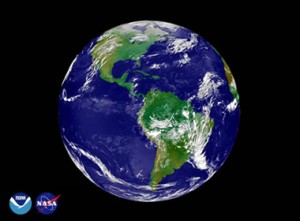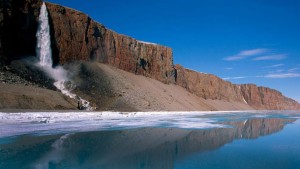November 28, 2015
Statement of Purpose
By Zhuoqun Cao John
The marvelous solution cavities, distinctive karst landform and venerable silicified wood in the Silicified Wood National Geological Park where I toured for a visit in my childhood aspired my interests in geographic science. Curious and eager, I wanted to work out the reasons for these unique geological phenomena. I got the keys to my puzzles to the aforesaid geology by studying geological courses in my middle school. There are a number of factors at play, including the earth’s inner structure, the plate tectonics, climates and environment. My college study opened me other door from which I accessed to the wide application and promising prospect for geological science. The geographic information system, for example, has been prevailed in human life and is applied for navigation and strategy making for governmental and commercial institutions.
The September of 2010 witnessed my enrollment in Zhejiang University with a specialty of Geoinformation Science & Technology. My undergraduate education has been an essential preparation for the application. From courses such as the Fundamentals of the Earth Materials, Fundament of the Structure Analysis, Geochemistry, Geophysics, and Biological Evolution and Historical Geology, I has developed an insight of the relationship between geographic properties and tectonic forms and formed a systematic understanding about subjects and methods for geoinformation science and technology. Beard in the mind to acquire as much as hand-on operations as an applied science student, I was active to learn courses related to GS, GIS and GPS and had an insightful understanding about 3S technology. In addition, I was apt at solving geographic problems with computer software. I used Envi to proceed simple remote sensing images and ArcGis software to make map compilation and modification. Visual Studio, SQL Server and Fortran Language proved to be of great importance to my programming and geographic database construction. During my courses study, I found myself the most interested in geophysics, which boasts cutting-edge strength in geoinformation science and technology. It provides investigators with a macro view for researching into geological structure and will be beneficial for resource exploration.
One of the initiative research programs I dedicated to is Multiple-scale Geological Map Management System in June 2012. Actually, the project was a secondary development based on the current software platform to realize the geologic map management. As a green hand, I spent much time in reviewing documents and designing my own research, which promoted my ability of searching, assessing and criticizing literature. During the research section, I was especially confronted with obstacles on selection of platform and programming language. By comparing the characteristics of platforms and languages, I preferred to choose VS2012 programming and C language to achieve the function. Since I did not familiar with Visual Studio programming, I learnt by myself the related knowledge. After monotonous repletion and multiple times of debugging, I managed to realize the index programming.
The above experience played a milestone influence for my following experiments. The purpose of the experiments was to use the finite difference method to achieve the wave field numerical simulation, and find a more efficient algorithm to calculate the simulation progress. Before the start of the project, I referred to more than fifty professional documents on the approach for wave field numerical simulation. I tried hard to have a better understanding about the system instruction of Linux System and master the steps, theories and implementation methods for finite difference method and iterative algorithm. To work out the feasibility of finite difference method for the high-efficiency simulation, I compared different iterative methods and finally applied SOR iterative method. When I encountered failure for function convergences, I came to debug the programming, optimize finite difference method in view of its parameter, initial value, and iterations and eventually realize the best wave field simulation. The success in solving the problem proved my anticipation and further fired my enthusiasm for research. My devotion to the research was a valuable experience of internalizing and applying new knowledge.
As a practical student, I also participated in a field cognitive practice in sophomore to fuel my passion for geo-information science and technology and cultivate my ability to conduct geographic work. During the 13-day lasting field practice, we moved across the mountain areas in Xinchang, Xihu, Lian’an and Jiande. By taking detailed notes of the properties, distributions and characteristics of rocks on the way, I applied what I learnt into actual use and burst into new comprehension. In addition, I became a veteran for using compass, geographic hammer, flexible rule, and magnifying glass after this practice. When the practice completed, I wrote a 47 page practice report in which I illustrated my gains both in academic accumulation and field practice skill cultivation. With enriched professional theories and matured field experimental ability, I organized another field practice in senior year. As team leader, I should formulate investigation lines and assigned tasks to members. I gained a lot from this field practice. To begin with, I mastered the basic knowledge and operating methods for geological mapping, including field reconnaissance, sample collecting, geological sketch, calibrating geological observation spot and description of observation route. Then I improved the ability to observe, communicate and solve problems for geographic observation.
In January 2013, I interned in China Petroleum Natural Gas Co., Ltd. Daqing Refining and Chemical Branch Company to learn to operate system and method for petroleum preparation. Under the instruction of senior workers, I visited the main control rooms of lubricating oil, polyethylene and oil refinery and made a site observation of refining equipment. I also learnt how to operate DCS system and regulate technical parameters of production equipment. To collect and summarize working data is another work I should do in the internship. Via referring to piles of documents, I had a deeper understanding about property of petroleum product and absorbed amount of professional terms. My internship in this refining company not only allowed me to learn the technological process, but also reminded me the importance of safety production, which plays an essential role in economic and environmental production of petroleum resources.
My undergraduate study, scientific researches and internship have armed me with attentive and insightful professional accumulation and research competence, however, I was insufficient in geophysics knowledge due to tight course schedule and limited experimental conditions in my university. Meanwhile, without entry to professional geology and geography companies for internship led to my weak in applying various types of exploratory technologies into actual use. My resolute to study in the U.S. will satisfy my need for geophysics resources, enlarge my scope of Earth science and improve my practical research ability. A closer access to the advanced technology and research achievement will further broaden my horizons and generate new ideas. My research qualities and the advanced research source in the U.S. will make for my future study and career path.
The MS in Earth System Science in George Mason University offers me the chance to access to far-reaching and interdisciplinary research activities. I am especially interested in the research fields including geography, geophysics, seismology and geochemistry. I plan to find a job related to my professional knowledge to enhance my experience and skills. My ideal workplace is in ION Audio LLC, Petroleum Software Technologies, Dakon Technologies, Inc. and BGP.

